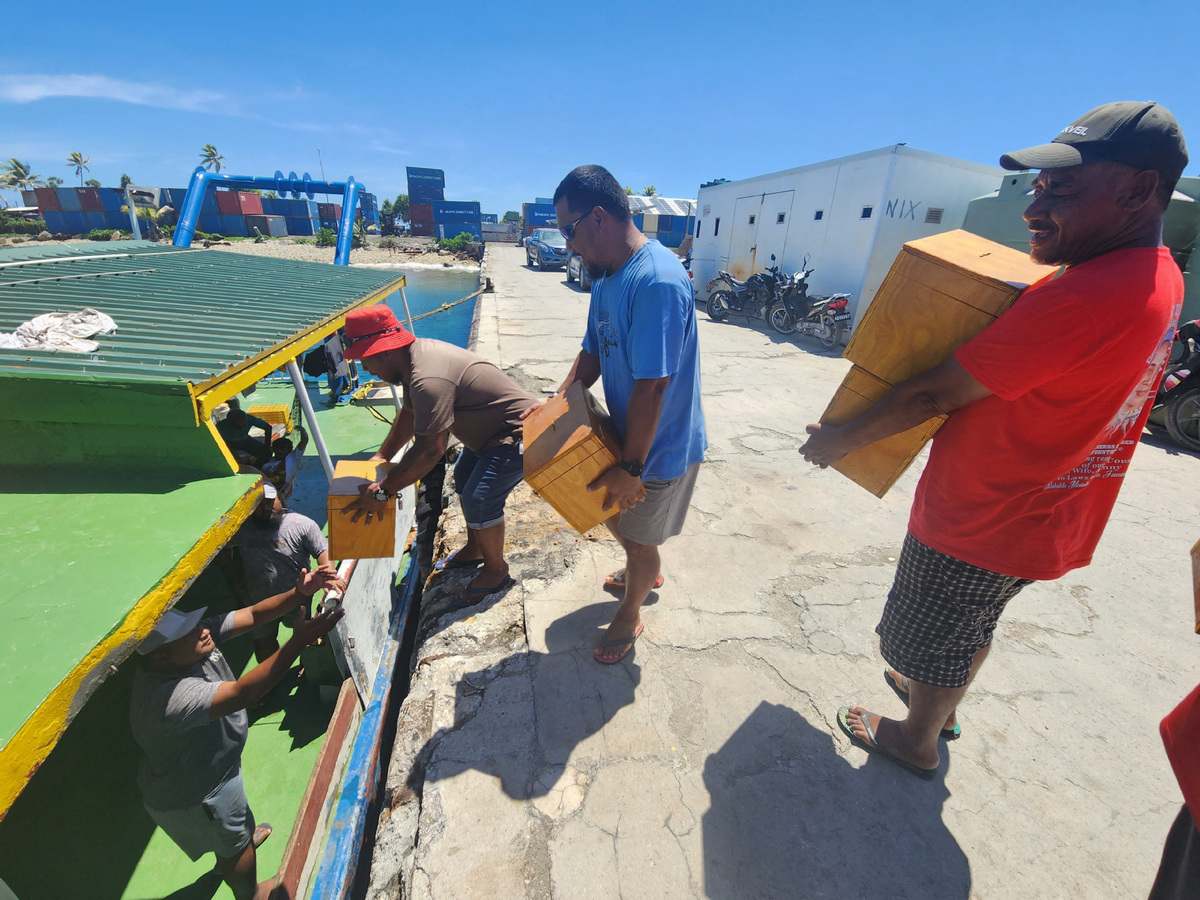Pacific Islands' woes worsen amid worries over climate


For people in Tuvalu and other Pacific Island nations, retaining their homeland or searching for new homes are becoming big questions as constant seawater rises threaten to submerge their countries in coming decades.
Tuvalu, formerly known as the Ellice Islands, can be one of the first countries in the world to disappear due to climate change. Comprising nine islands midway between Australia and Hawaii, over 11,000 people have their homes on a landmass of just 26 square kilometers.
A great majority of Pacific Islands' people will still be adapting to climate change in their home country by 2050, according to a comprehensive report on Pacific Islands' population trends to 2050 by the University of Auckland.
"It is true that many low-lying atolls are increasingly affected by climate-related conditions like rising sea levels and coastal inundation," Yvonne Underhill-Sem, co-lead of the University of Auckland research team, told China Daily.
She said Pacific Island nations are working on a range of technological ways to protect and even expand some land in the future.
"They are also working on ways to retain their sovereign status even as their physical boundaries shrink," Underhill-Sem said.
Moreover, their population is expected to increase rather than decrease, from 13 million to 20 million by 2050, according to the report released earlier in January.
Many residents are expected to move away to other countries, including New Zealand and Australia, and there are a range of possible mobility options, she said.
In November, Australia and Tuvalu announced a landmark treaty where Australia offered permanent residency to the people of Tuvalu.
Under the agreement, Tuvalu citizens will be allowed to live, study and work in Australia.
They would be able to access Australian education, health, and key income and family support. Although the exact number was not outlined in the agreement, it was widely reported the program will be open to 280 Tuvaluan citizens each year.
Underhill-Sem noted this is a proposed policy which has yet to be fully implemented.
"It is highly unlikely that the numbers offered permanent residence in Australia will be enough to mitigate the population momentum on the islands," she told the correspondent.
"There is a very strong desire to stay and retain a place called home, perhaps with a smaller population."
Many Pacific Island countries which have allowed their citizens to participate in labor mobility programs are increasingly concerned about the social and economic effects of the loss of mostly able-bodied citizens. So they are also reducing the numbers allowed to travel.
"This is the case for Tonga and Samoa," she said.
" (People from) other countries like the Cook Islands, Niue and Tokelau can travel to New Zealand, and onto Australia under special constitutional arrangements."
The director of the Macmillan Brown Centre for Pacific Studies at the University of Canterbury, Steven Ratuva, said: "Climate mobility will and has been a major issue in the Pacific."

































